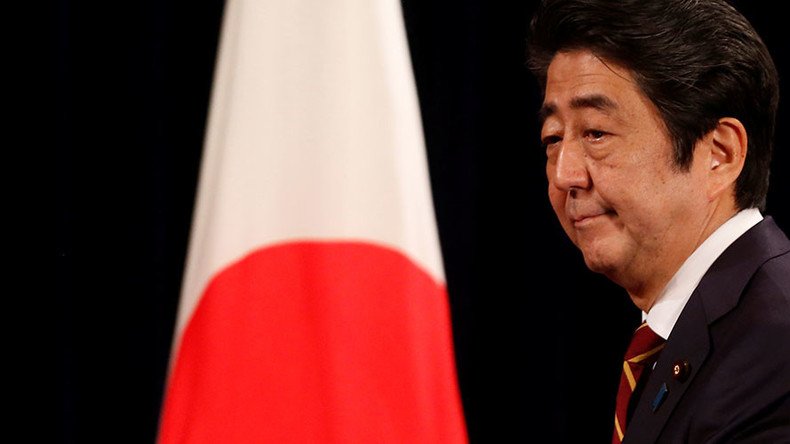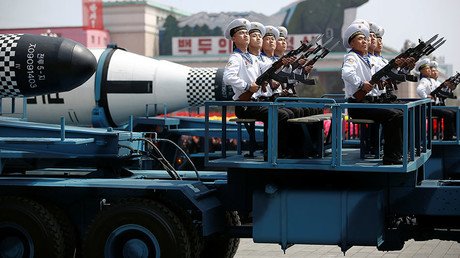With US & North Korea saber-rattling, Japan moving to remilitarize

If the US tries to attack North Korea and Japan joins in, the Koreans would retaliate against American bases in South Korea and Japan. Japanese PM Abe is playing on people’s fears to push for remilitarization, Asia specialist Tim Beal told RT.
Japan's pacifist constitution turns 70 on May, 3. Days before the anniversary Prime Minister Shinzo Abe said the country’s leading law needs a change.
The proposed revisions would see an end to the limits on taking part in international conflicts and using troops only for self-defense.
There was a significant move in 2014 when the PM wanted to allow the military to use force in cooperation with other countries. Two years ago, the parliament approved troops fighting outside of Japan.
RT: Abe promises reforms to amend the constitution's pacifist text. What do you think these reforms could be?
Tim Beal: Abe has been trying to amend the constitution for a long time both by changing the constitution and by reinterpreting it. The basic thrust of this is the remilitarization of Japan and restoring Japan to be what they call ‘a normal country’ after the defeat in WWII. This is a continuing effort by Abe which is reaching a pretty tense point at the moment.
RT: Considering the protests in the country, do you think he will succeed with those reforms?
TB: There is a lot of pacifist feeling in Japan, a lot of opposition to remilitarization. There are memories of what the military period did to Japan 70 years ago. Not merely the atomic bombs over Hiroshima and Nagasaki, but the firebombing of Tokyo and other cities. The two million or so Japanese who had to flee back to Japan from the colonies, and so forth. This is a very sad and distressing history, and lots of Japanese are aware of that. The problem is that the Japanese government is very adamant and keen to remilitarize and it is using all sorts of arguments and techniques and forms of persuasion, especially in relation to North Korea and also in respect of China to scare the Japanese people into thinking that remilitarization is going to make them more secure. In fact, it will make them less secure. But people don’t necessarily see it that way.
RT: Is Abe using the fear of the Japanese people toward the Korean aggression to reach his goals? Do you think Japan should become more militarized considering North Korean efforts with nuclear weapons?
TB: No, this is all a pretext. What is happening is that the Americans have been contemplating for a long time how to destroy, if you like, North Korea, how to possibly disarm it, how to take it over. This situation has become a difficult point partly because of Trump, partly because North Korea’s program of developing a nuclear deterrent is reaching a stage where they can in a few years’ time retaliate against the US if they are attacked. If that happens, then it is going to be very difficult for the American government to attack North Korea. At the moment, it is still on the edge because although there will be lots of people killed in North Korea, South Korea, millions of people, perhaps, and in Japan, as Senator Graham said, “It will happen there, it won’t happen in the US.” So, at the moment an attack on North Korea doesn’t pose a huge amount of danger to the US, but it would in the future. If the US is going to achieve its aim of disarming North Korea and taking it over, in a sense, they have to do it fairly soon. They can’t hang around and wait. That is the problem at the moment. Japan, following its defeat in WWII, hosts the main American base in East Asia. This is aimed at China, but in the event of an attack on North Korea, the Koreans would retaliate, of course, against the American bases in South Korea and in Japan. So, Japan is in the firing line there. Abe is playing on these fears to push for the remilitarization.
The statements, views and opinions expressed in this column are solely those of the author and do not necessarily represent those of RT.














